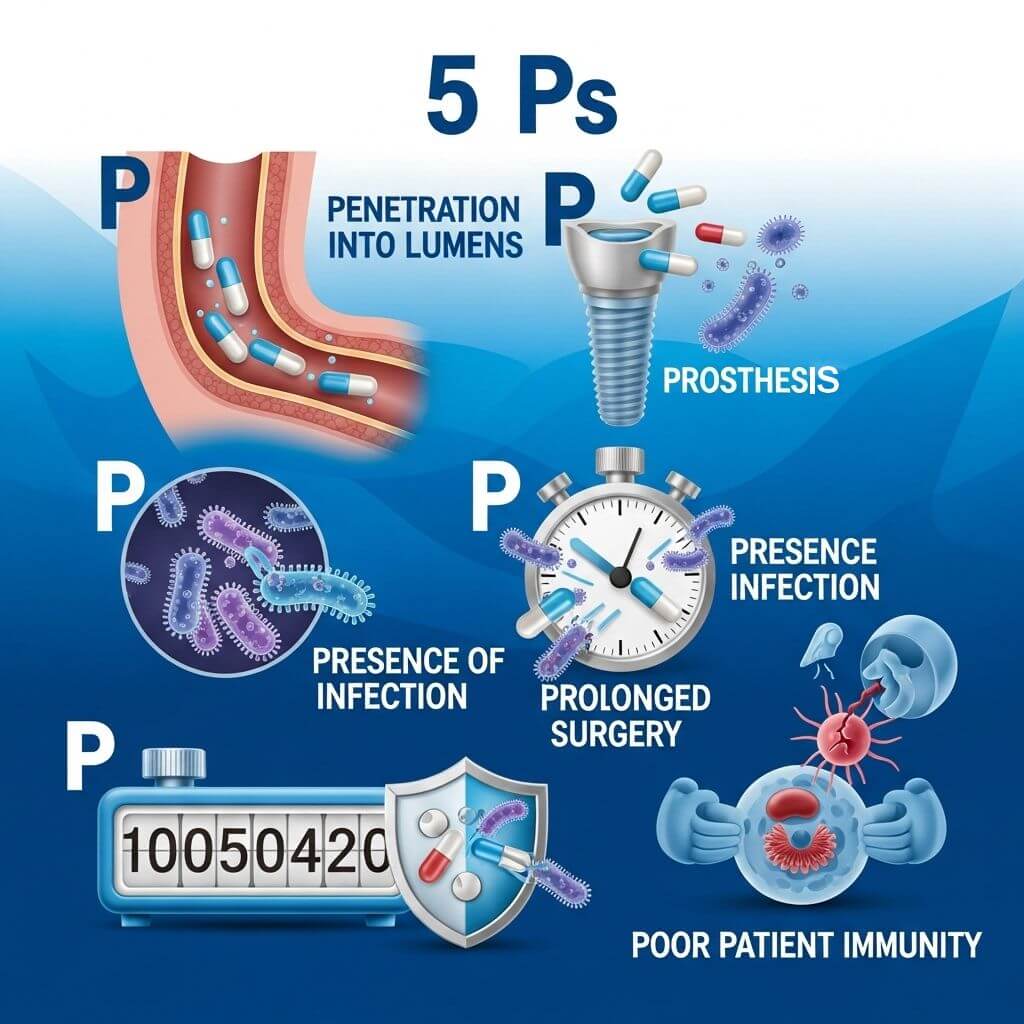Potential indications for antibiotic prophylaxis before surgical procedure are: 1. Penetration into gastrointestinal, respiratory and genital lumens 2. Prosthesis 3. Presence of infection 4. Prolonged surgery 5. Poor patient immunity Reference: Hasanin A, Mostafa M. The “5-Ps” Mnemonic for Antibiotic Prophylaxis Before Surgery. Anesth Analg. 2025 May 7. doi: 10.1213/ANE.0000000000007596….
Tag: General Surgery
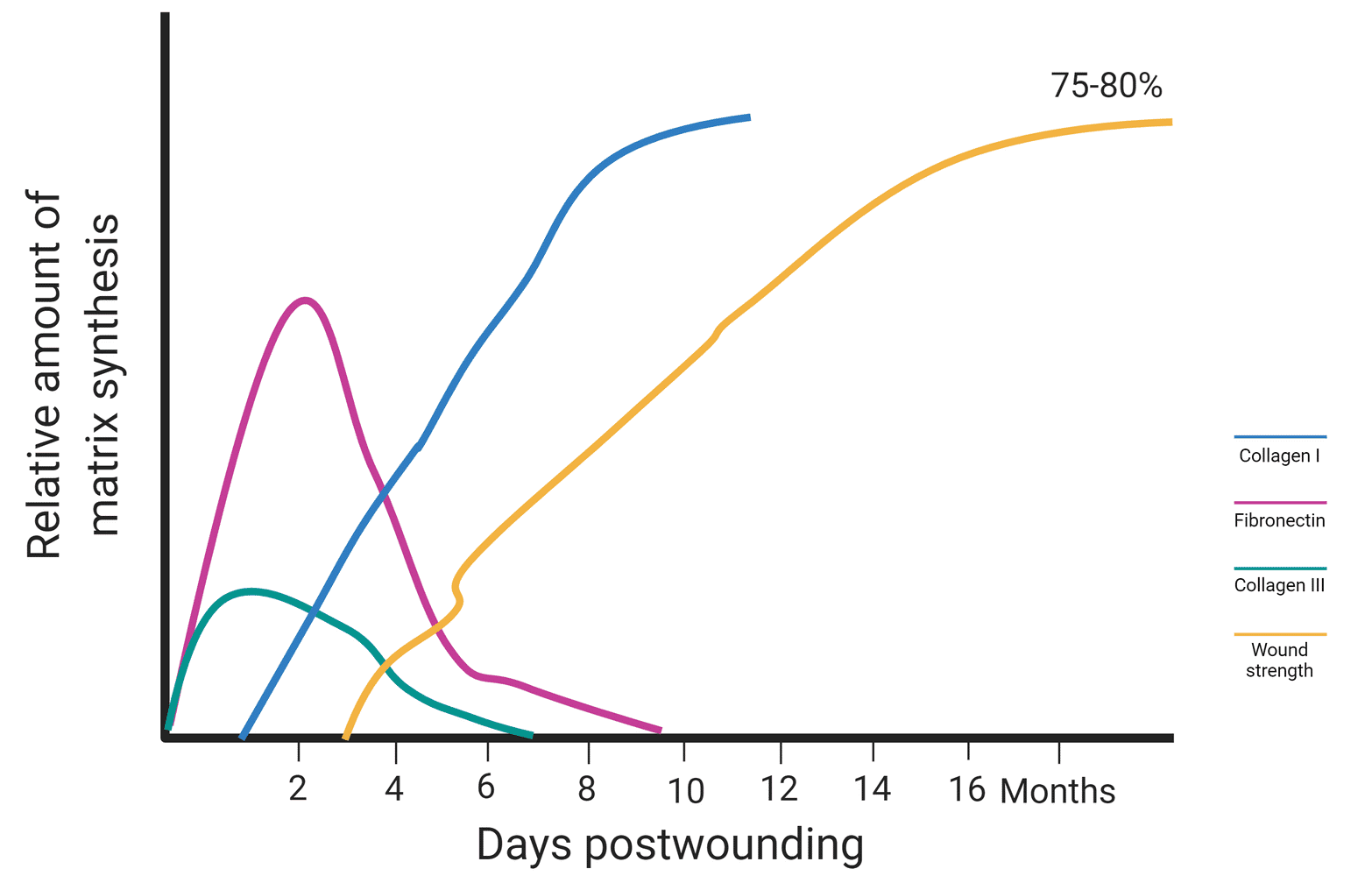
Wound Strength
Wound strength is determined by both quantity and quality of collagen and an appropriate balance of deposition and breakdown. The amount of collagen in a wound plateaus at several weeks post-injury. Timeline: 1. First few weeks: Strength increases rapidly, reaching about 20% of pre-injury strength at 3 weeks. 2. Around 6 weeks: Wound strength…
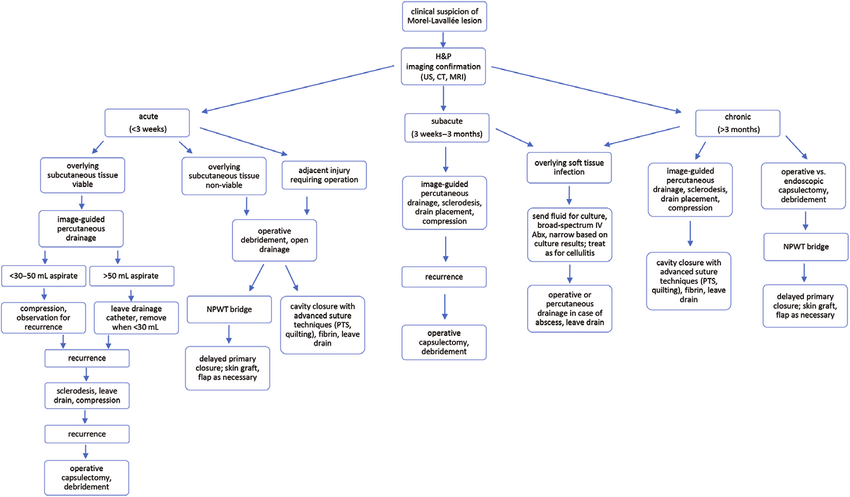
Morel Lavallee Lesion
Definition: Post-traumatic closed degloving injury, in which the skin and subcutaneous tissue is detached from the underlying fascia by a shearing force which can disrupt perforating vessels and nerves, creating a potential space that fills with blood, lymph, debris and fat (necrotic and/or viable). Clinical features: The diagnosis can be…
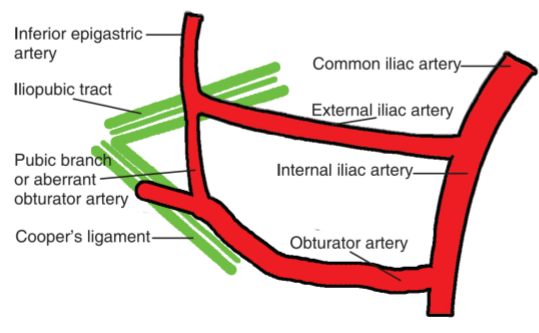
Corona Mortis
Synonym: Crown of Death Definition: Retropubic vascular anastomoses between the obturator and external iliac systems Location: Behind the superior pubic ramus at varying distance from the symphysis pubis (range 40-96 mm) Morphologies: a. Arterial corona mortis (8-65% incidence): b. Venous corona mortis (40-96% incidence): c. Combined arterial and venous corona…

Surgical Site Infection Risk Factors : Mnemonic
Various types of surgical site infection (SSI) have been defined by CDC. Patient related factors Mnemonic: WASHING 1. Weight: Obesity (>20% of ideal body weight) 2. Antibiotic resistant skin flora: MRSA colonization 3. Advancing age 4. Smoking 5. HIV and other immune deficiency conditions 6. Infection coexisting at other sites…
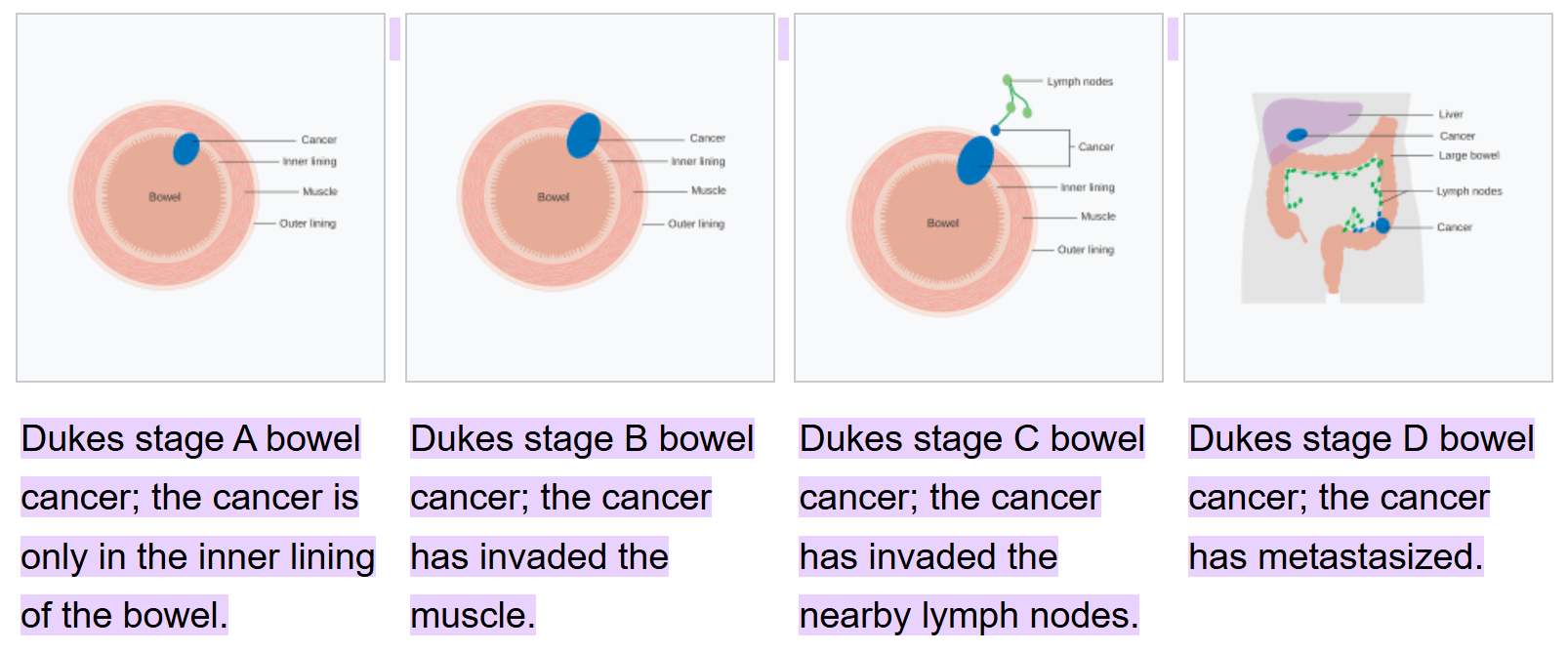
Colorectal carcinoma – Duke Staging and Management
TNM stage Duke’s stage Description 5 yr survival Surgery Chemotherapy Radiotherapy 0 – Tis, N0, M0 Limited to mucosa >95% Local excision/polypectomy → Surveillance No No Mnemonic I – T1-2, N0, M0 A A-Ok limited to bowel wall only 90% Wide surgical resection + Anastomosis No No II – T3-4,…
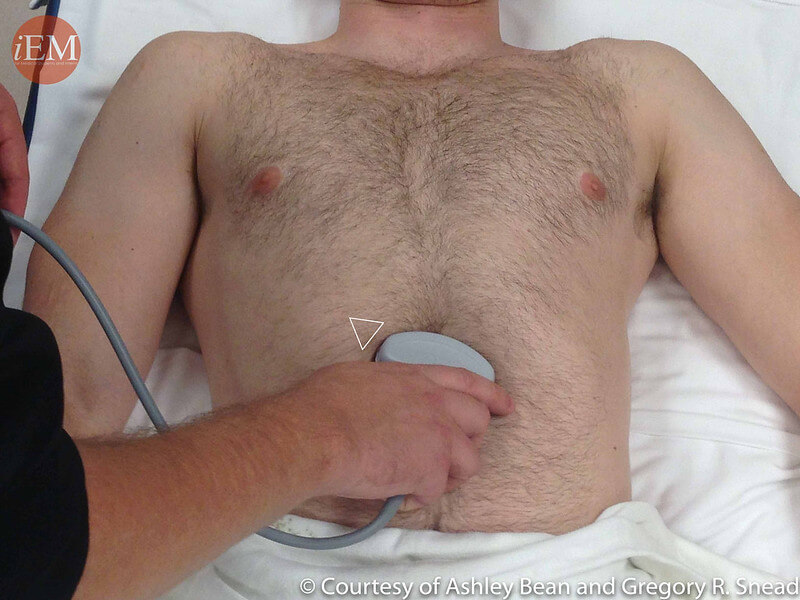
Spleen, Liver, Kidney Trauma
Approach to abdominal trauma has been discussed earlier. Spleen Injury Liver Injury Kidney Injury General 2nd m/c injured intra-abdominal organ in blunt trauma m/c injury requiring operative intervention in blunt trauma m/c injured intra-abdominal organ overall m/c injured intra-abdominal organ in blunt trauma m/c from blunt trauma maximum warm ischemia…
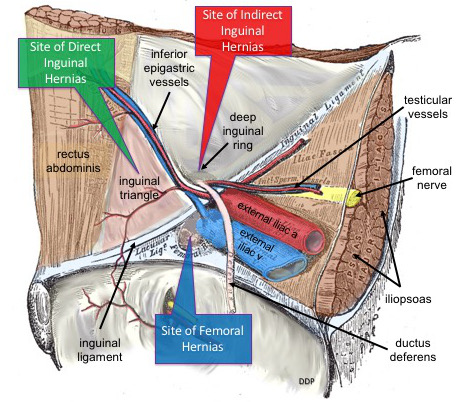
Inguinal Canal : Mnemonics
Walls of Inguinal Canal Mnemonic: SALP 2 X MALT Starting from superior, moving counterclockwise in order to posterior: 1. Superior (Roof): 2 Muscles (Internal oblique, Transverse abdominus) 2. Anterior: 2 Aponeuroses (External abdominal oblique, Internal abdominal oblique) 3. Lower (Floor): 2 Ligaments (Lacunar and Inguinal) 4. Posterior: 2 T‘s (conjoint…
